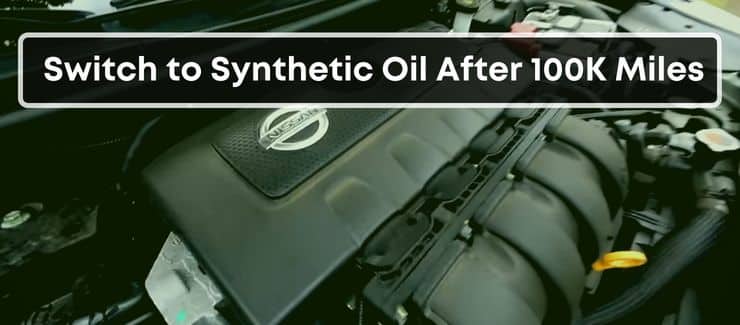TL;DR
Switching to synthetic oil benefits your car, even if it has 100K or 200K miles under the belt. That said, it won’t save you any money if you do not drive regularly (accumulate enough mileage) to take full advantage of its extended oil change intervals.
There was a time when most car owners used to stick with conventional motor oil for their vehicles.
But that time is long gone, and now synthetic oil is the go-to choice for almost every new car owner. And for good reasons.
These oils give better lubrication, enhanced engine protection, more fuel efficiency, and improved all-weather performance than their conventional counterparts.
However, this is just one side of the picture.
There is an equal number of people who complain their vehicle’s engine leaks oil after switching to synthetic oil. And this is what prevents many car owners, especially the ones with older cars, from switching.
That’s because their vehicle runs fine with conventional oil, and they don’t want any new engine problems to surface in return for longer oil change intervals.
Should You Switch to Synthetic Oil After 100K or 200K Miles?
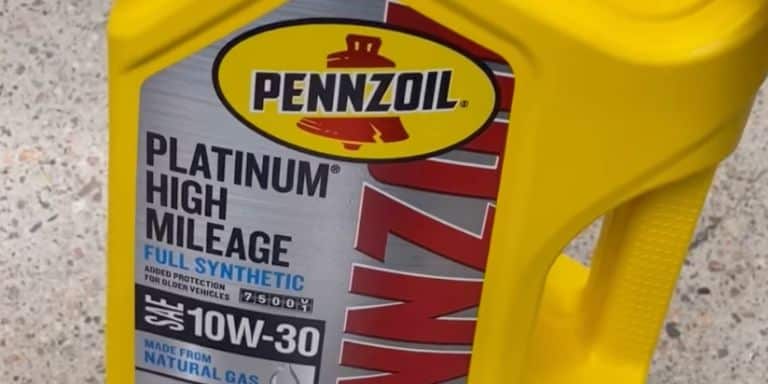
In my opinion, this criticism of synthetic oils is primarily based on hearsay.
When introduced in the 1970s for the first time, these oils used to have a high concentration of ester.
This highly concentrated ester would chemically react with the ester-based engine seals in some vehicles, causing them to lose their tension – resulting in the oil leaking out of the engine.
This issue doesn’t happen today as the synthetic oil industry has evolved. Manufacturers have to comply with many certifications and tests to ensure that their synthetic oil doesn’t cause the engine seals to change their elongation, hardness, tensile strength, etc.
Therefore, these synthetic oils are perfectly fine for an older vehicle, even if it has run 100K or 200K miles. All you need to do is check the back side of the oil can and ensure that it has all of the necessary certifications.
Another criticism against synthetic oils is that they have more detergents and dispersants than conventional oil. These additives can remove the sludge and gunk deposited in the engine (due to prolonged use of conventional oil), leaving the seals and gaskets exposed – resulting in oil leaks.
However, in this case, the problem is with the engine seals and not the oil. Therefore, the best solution would be to transition to synthetic oil before the seals wear out.
That’s because many of these oils come with chemicals that can keep the seals flexible and swell slightly – preventing oil leaks.
When Not to Switch to Synthetic Oil?
With all said, there’s one caveat for synthetic oil. It’s not the best option if you don’t drive frequently.
Many of us want to use synthetic oils simply because of the longer oil change intervals they offer – modern synthetic oils can last up to 10,000 miles.
But if you drive less than 5,000 miles per year, it won’t be cost-effective as you’ll be changing the oil every 12 months or so without its maximum utilization.
If that is the case with you, go for a high-mileage conventional oil instead of synthetic.
How to Maintain High-Mileage Vehicles?
Apart from switching to synthetic oil and changing it regularly, there are many other things you need to do to maintain a high-mileage vehicle, such as:
Change Oil Filter
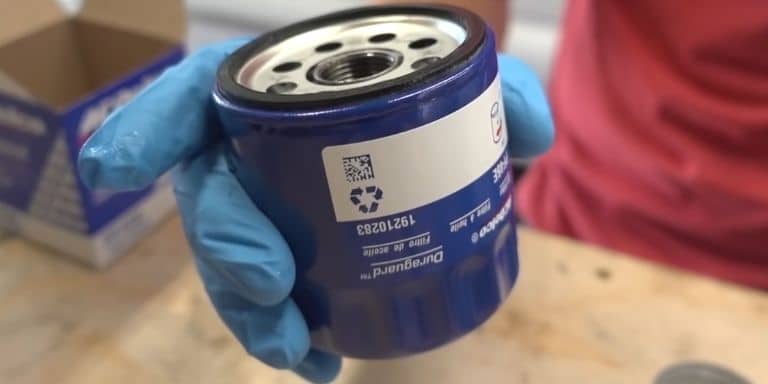
As the engine oil ages, it gets contaminations and impurities in the form of metal particles, dirt, and carbon deposits. These impurities make the oil dirty and reduce its ability to lubricate the engine parts and keep them cooler.
This is where the oil filter comes into the equation, as it keeps the oil clean from those contaminations so that the latter can perform up to its full potential.
But in doing so, the oil filter can get clogged over time, which reduces the amount of oil that can pass through it.
Therefore, when changing the oil, it’s considered a good practice to replace the oil filter, too.
These filters don’t cost much and are crucial in maintaining your engine’s health and performance. A new oil filter ensures that the fresh oil you added flows freely throughout the engine.
Change Coolant
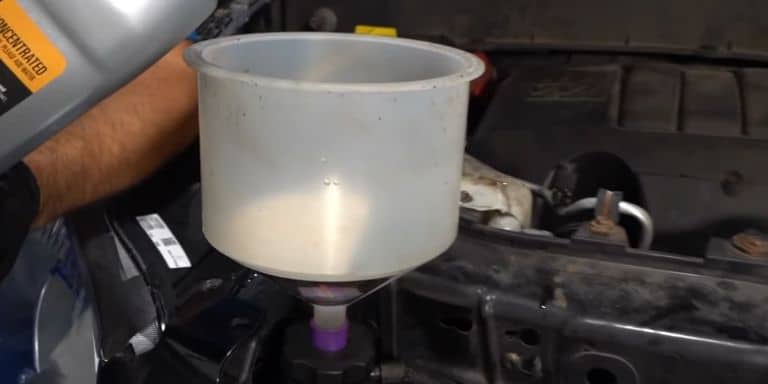
The coolant is a fluid that goes into the radiator to keep the engine at its optimal operating temperature.
It does so by absorbing heat generated during combustion and dissipating it into the surrounding air – preventing the engine from overheating.
Once the engine hits the 100K mark, the additives in the coolant start to break down, and it loses effectiveness.
Therefore, you should monitor the coolant levels in your vehicle and add more fluid if it’s below the minimum mark labeled on the radiator or if the existing coolant has gone past the 100K miles.
One mistake I’ve seen many car owners make is that they think the coolant and antifreeze are the same.
While both terms are related, antifreeze is the concentrated form of the chemical, such as ethylene glycol or propylene glycol. On the other hand, coolant is the antifreeze + water in a 50-50 ratio.
That’s why, when changing the radiator fluid, only add water if the fluid is an antifreeze. Do not mix any water if it’s a coolant (as it already has).
Change Transmission Fluid
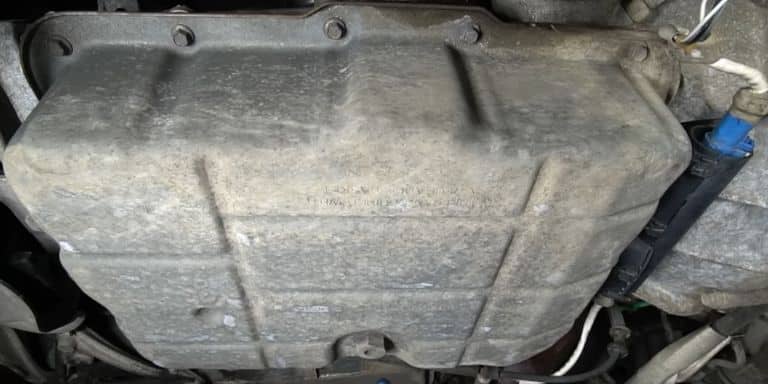
Just as the motor oil lubricates the internal components of the engine, the transmission fluid lubricates the transmission’s internal components, such as clutches, gears, bearings, etc.
Although it lasts way longer than than the engine oil, you still need to change it after every 30,000-50,000 miles, as it can get old or dirty over time due to wear and contamination – resulting in less lubrication and transmission overheating.
The common symptoms of this issue include slipping gears, rough shifting, whining noises from the transmission, the ‘transmission over temp’ warning light on the instrument panel, etc.
Should You Use Thicker Oil In Older Cars?
When the engine is new, the oil weight you use should be the one recommended by the manufacturer (you can see it on top of the oil cap or in the user manual).
But as the engine ages, the clearance within its components increases due to wear and tear. The increased space results in low oil pressure as the oil can now flow better between the engine components. As a result, you get the low oil pressure warning light on the instrument panel.
In such cases, you can switch to a slightly thicker oil as a last resort.
High-Mileage Oil vs Synthetic Blend: Which One is Better?
The high-mileage oils are specifically designed for older cars and contain many additives to fix fuel consumption, leaky seals/gaskets, engine wear, etc.
On the other hand, the synthetic blend is a mixture of synthetic and conventional oils, which allows it to be cheaper than fully synthetic oil while delivering better performance than conventional motor oil.
In short, both are good in their own right, and the one you’ll go with will depend on the engine’s mileage and your budget.
When Should You Switch to Synthetic Oil After Break-In?
Many car owners run their new cars a few thousand miles (usually, 4000) on conventional oil so that their freshly-built engine can ‘break in.’ But, in reality, it’s just a common myth, and there’s no harm in using a fully synthetic oil in a brand-new vehicle.
How Often Should You Change Oil After 100k Miles?
Once your vehicle has hit the 100K-miles mark, you need to change the oil after every 3000-5000 miles for optimal performance.
Is it Too Late to Switch to Synthetic Oil?
It’s never too late to switch from conventional to synthetic oil.
Yes, the prolonged usage of conventional oil means there will be internal deposits accumulated inside the engine, leading to temporary leaks in older cars upon switching.
But this can be fixed by frequent oil changes during the initial period.
Once the engine has adapted to synthetic oil, the oil leaks will stop, and you’ll be able to extend the oil change intervals.
And if you feel to have made a wrong decision, there’s always an option of switching back to conventional oil.
Do Synthetic Oils Go Bad If Not Used?
Like conventional and semi-synthetic oils, the synthetic oils can degrade and lose its effectiveness if not used. But these oils don’t go bad for 7-8 years, making it rare for them to expire.
